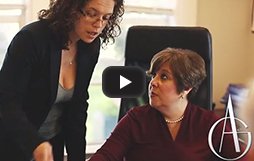I’m Going Bankrupt: Can I Save My Business?
Central Florida is home to many small business owners and plenty of not-so-small business owners. Bankruptcy lawyers in Orlando are often confronted with this difficult question, because going bankrupt is a very different process for those who earn their living by being self-employed. After all, if you are working for someone else, you may not be fired for going bankrupt. Your income stream continues even after your debts are discharged. However, the self-employed person may be forced to close his business. This reality causes many self-employed people to struggle and avoid bankruptcy for years under the mistaken belief that they have no other options. But there is hope.
What is Chapter 7?
Chapter 7 is a straightforward type of bankruptcy. Although you must qualify, once eligible to file a Chapter 7 bankruptcy, you may discharge many of your debts and start over right away. Many people find that the case is resolved in as little as four or five months, although some do experience longer timeframes. Once discharged, recovery begins. Although the bankruptcy remains on your credit for 10 years, many people are able to qualify for loans to purchase vehicles and homes within just two to three years after discharge, albeit with somewhat higher interest rates.
How does a personal Chapter 7 Affect Business Owners?
If you own a business, the situation becomes slightly more complicated. The level of complexity, however, depends largely on what type of business you own. It helps to remember all the things that went into starting your business; remember why you set it up the way you did.
1) Sole Proprietors and Partnerships
Sole proprietors and many general partners own their business’s assets solely in their own names. This means the equipment, cash, and other assets of the business are considered personal assets. So, if you are a sole proprietor or general partner, Chapter 7 will be much like it is for others. If you are looking to close your business and take employment elsewhere, then there should be no problems. Assets are sold off and business debts are discharged just like any other personal debts. Businesses that have no assets to sell, such as service companies, may be permitted to continue operating.
2) Limited Liability Companies
Not all LLCs are the same. Those with multiple members are generally treated much like partnerships, unless you have specifically opted to be treated as a corporation for tax purposes. How you are taxed will largely determine how you are treated in bankruptcy court. If, however, you are a sole member LLC, then you are generally treated as a sole proprietor, and those rules apply.
3) Corporations
If you are the owner of a corporation, and you intend to continue operating your business, you may wish to consider Chapter 13. In Chapter 13, you may retain all of your assets, including the business.
When is Chapter 13 a Better Choice?
While no one can give you a definitive answer until a full review of all the facts of your case, in general it is easier to keep operating your business if you select Chapter 13. For people with corporations – especially large corporations – Chapter 11 may even be an option. Chapter 11 allows for re-organization of the business to protect assets and shelter the company from potential lawsuits. Given the tremendous effect of such bankruptcy actions, you should always consult a knowledgeable central Florida bankruptcy lawyer who can walk you through the various options and explain the pros and cons carefully.
Sometimes restructuring a company may be necessary. Other times, a simple Chapter 7 may allow you to quickly and efficiently discharge most, if not all, of your debts and get a fresh start. And sometimes Chapter 13 will be necessary to protect larger assets like a home or small business. Only an experienced bankruptcy lawyer can advise you on which is better for your unique situation. Contact skilled central Florida bankruptcy lawyer Goodblatt · Leo to understand your options.






